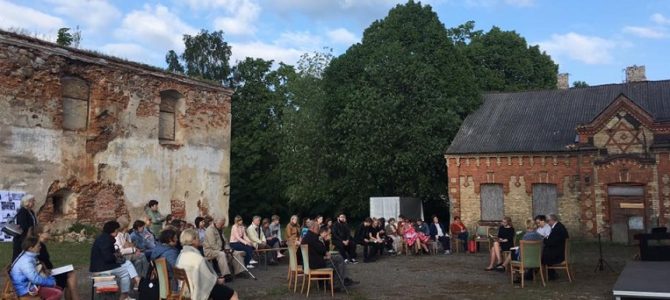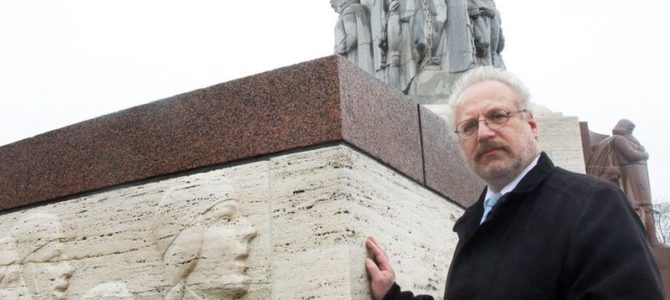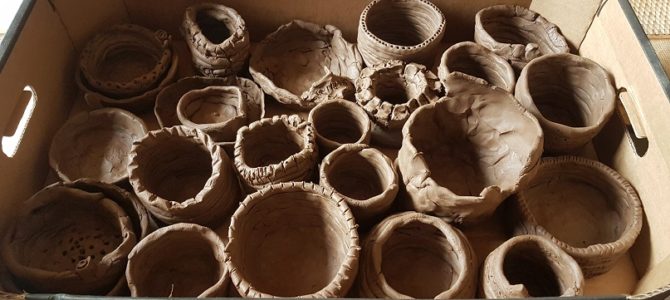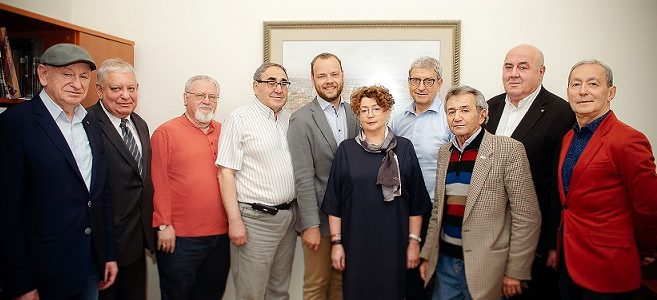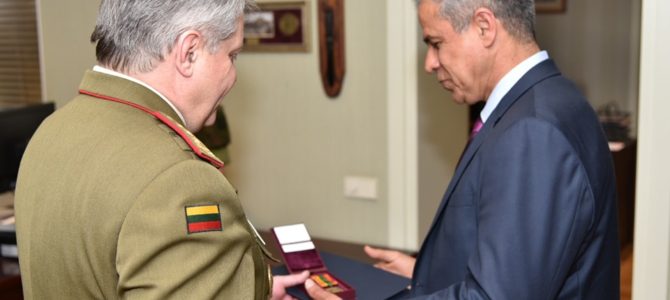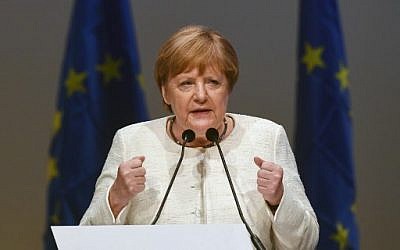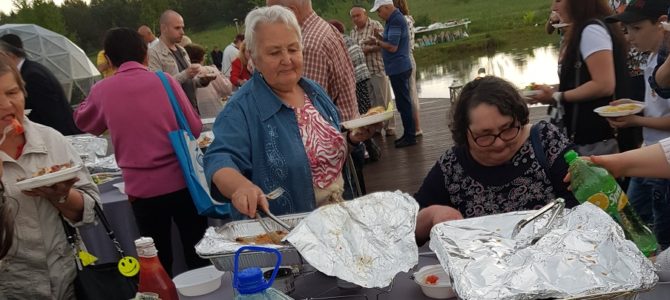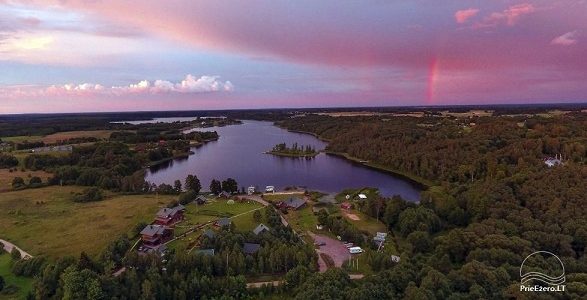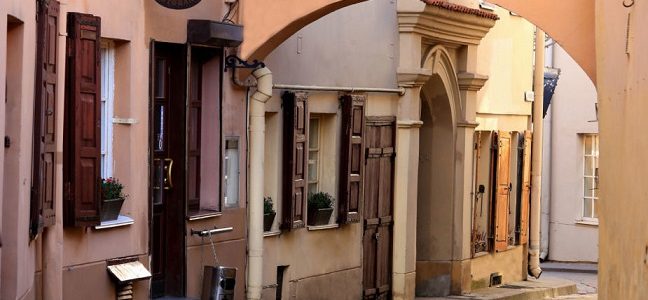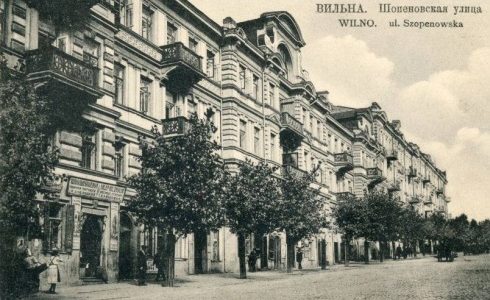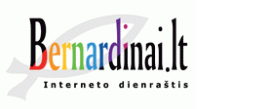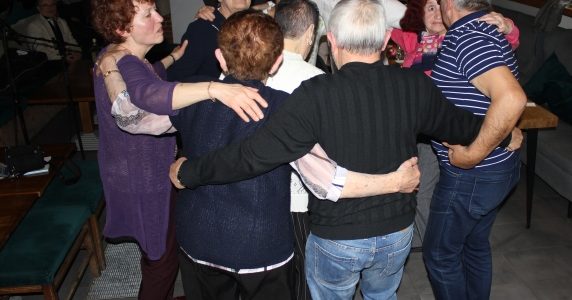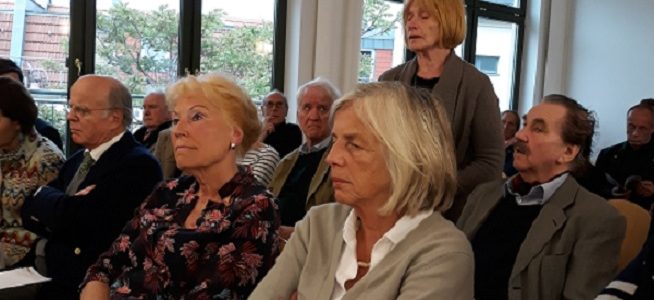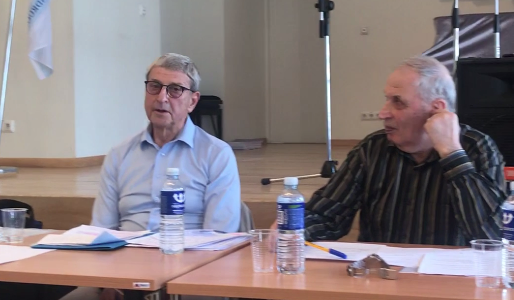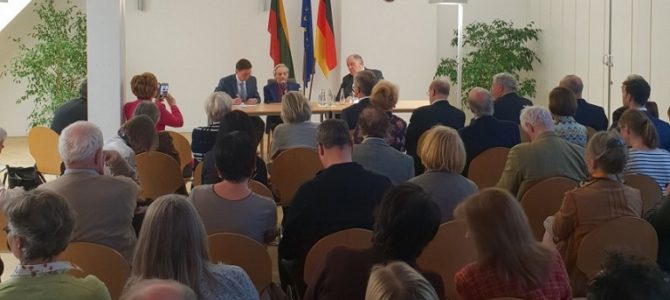In the period between the two world wars, the Jewish population was the majority population in Kalvarija, Lithuania. The architecture of the old town, a unique synagogue complex (with a winter and summer synagogue and the Talmud school) and the only surviving Jew, Moishe Segalis–all of this stands as a testimony to that time. For four Saturdays in a row now, as spring blossoms forth, there have been readings from Icchokas Meras’s novel “Lygiosios trunka akimirką” held near the synagogues in Kalvarija and in their courtyards. Lithuanian Jewish Community executive director Renaldas Vaisbrodas attended the final reading on May 24.
Students and soloists from the Sonantem choir in Kalvarija read from the work about the life of the Vilnius ghetto and about life which can be decided by the movement of a single piece on the game board.
A youth initiative invited the local community to an informal meeting with the relatives of those who once lived in Kalvarija, with our ancestors and neighbors.



















